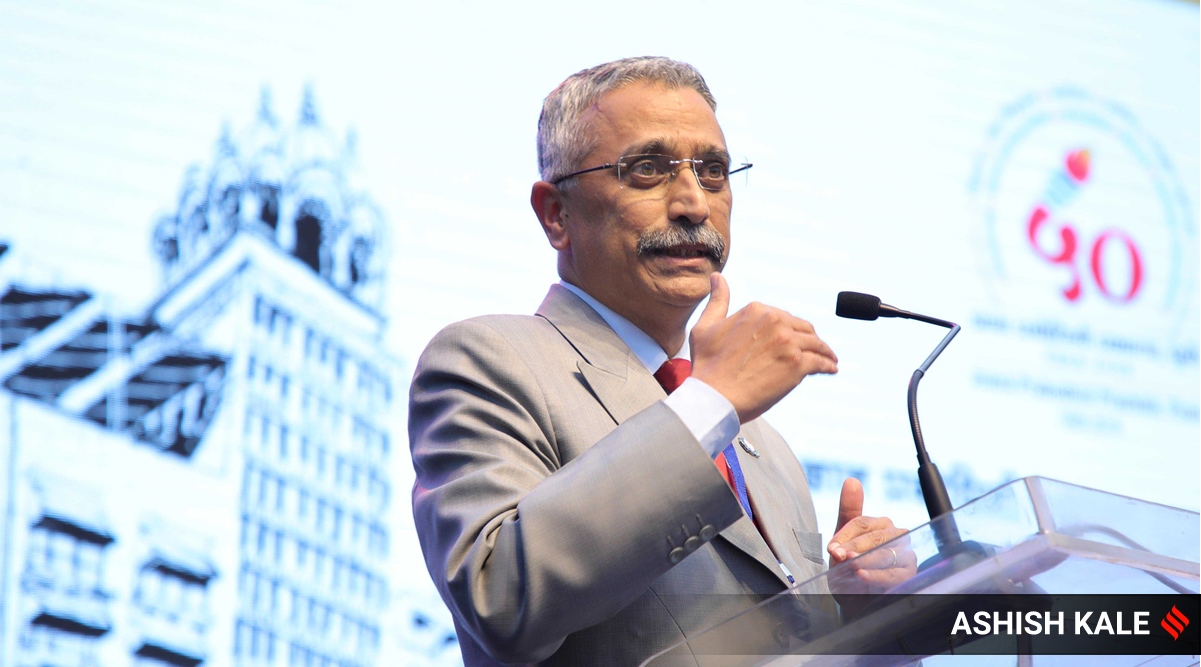The stakes are the future of Moscow’s relationship with the West.
A Ukrainian serviceman is seen at a position on the front line with Russia-backed separatists near the settlement of Troitske in the Lugansk region on February 22, 2022.(Photo by ANATOLII STEPANOV/AFP via Getty Images)
After years, months, weeks, and days of reiterating its opposition to NATO expansion, especially NATO’s determination to extend membership to Ukraine and Georgia, Moscow acted. Moscow recognized the independence of the two Russian breakaway republics in the Donbas and committed its forces to their defense.
For the moment, it’s a Mexican standoff: a confrontation from which none of the parties—Washington, Kyiv, and Moscow—can extricate itself without suffering a serious loss of face or worse. The stakes here are not merely the self-determination of the breakaway states, Luhansk and Donetsk, and the lives of Ukrainians and Russians, but the future of Moscow’s relationship with the West.
Napoleon Bonaparte said men and nations act from fear or self-interest. Russia’s fear of U.S. forces, including intermediate-range hypersonic missiles on its doorstep, parallels America’s fear of Russian nuclear missiles in Cuba. None of this is surprising. Throughout its history, Tsarist Russia reacted in much the same way, not just from self-interest, but from fear as well.
Since President George H.W. Bush left office, the expansion of NATO has been inextricably intertwined with the desire of Washington’s globalist elites to exploit Ukraine for its potential use as a dagger to be held at Moscow’s throat. It is now up to Washington to end this destructive process.
Washington must approach Moscow before the next phase in the crisis begins: the probable seizure by Russian forces of the territory South of Kiev between the current Russian border and the Dnieper River. Continuing the dialogue of the deaf, in which American representatives ignore the question of NATO membership for Ukraine, is pointless. The president should instead summon the Russian ambassador and propose the following three terms:
First, the United States and its allies will not tolerate the movement of Russian ground forces westward beyond the Dnieper. The deliberate crossing of the Dnieper by Russian ground forces with the goal of reaching NATO’s eastern border will be treated as a hostile act against NATO. The United States and its allies will respond to such action with the military means to stop it.
Second, the United States and its allies will agree to conditions of neutrality for Ukraine as currently configured. Washington accepts that the Ukrainian nation-state construct, as currently configured, is ahistorical and problematic. Eastern Ukraine was Russified long ago, and its population is Russian in language, culture, and identity. The Ukrainian heartland lies West of the Dnieper River.
Third, if Moscow accepts these points as the basis for an agreement, the United States and its allies will also work with Moscow to establish a new agreement restricting the numbers of U.S. ground, air, and naval forces permitted to operate in Eastern Europe. In addition, the United States is prepared to restore the Intermediate Nuclear Force Treaty. (The INF Treaty eliminated a particularly destabilizing class of missiles—those with ranges between 300 to 3,400 miles.)
These points should be used to gauge Moscow’s willingness to avoid unnecessary conflict and loss of life in Ukraine. Hysterical polemics from agitators in the Senate and House—who are not accountable for the tragedy that may ensue on the ground in Ukraine—should have no weight in crafting the final agreement.
For Washington’s European allies, the Biden White House’s elasticity of mind would come as a welcome relief. Of the allies, no state finds itself in a more difficult situation than Germany. Germans do not fear a Russian invasion. Russia’s standing professional army, a very capable and effective force, numbers just over 400,000 men. It is in no position to launch a theater offensive against the West. Russia’s economy cannot withstand a conflict with the West and there is no evidence of Russian interest in such an undertaking.
But in an exchange of economic sanctions, Germany stands to lose far more than Russia, the latter of which is a major energy and food supplier for countries in the West. Embracing Washington’s hostility to Moscow may preserve Berlin’s access to the American market, Germany’s top export destination.
But embracing Washington’s posture puts Germany’s access to Russia’s energy, raw materials, and agricultural products at risk. If Berlin abandons Nord Stream 2, Germans will be compelled either to increase their energy dependence on the Near East—with all of the dangers dependence on the Islamic World entails—or maintain the nuclear-power plants that Germany’s electorate insists on shutting down.
Finally, the German electorate, like most of NATO’s European electorates, prefers to let Washington pay for its defense, but this reinforces Berlin’s vassal status. If Berlin is ever to be fully sovereign, it must build capable armed forces that can protect the German people and confer true independence in foreign affairs.
Washington’s diplomacy with Moscow was always a dialogue of the deaf; Moscow proposed and Washington ignored. Would the Biden White House even entertain the proposal outlined in this OPED? It’s hard to know.
C.S. Lewis warned that arrogance and ignorance march hand in hand with us into hell. If so, Washington is well on the way.
Douglas Macgregor, Col. (ret.) is a senior fellow with The American Conservative, the former advisor to the Secretary of Defense in the Trump administration, a decorated combat veteran, and the author of five books.
Latest Articles
Note: This article have been indexed to our site. We do not claim legitimacy, ownership or copyright of any of the content above. To see the article at original source Click Here














